Meet Thomas Campbell
Tom Campbell is a physicist and the author of the My Big TOE trilogy. During more than 30 years, he has explored alternate physical realities and has presented a theory that models our reality in a way everyone can understand. Reality is much bigger than you might think. Does this sound absurd to you? Just listen to this...
Full transcript of the interview:
Tom: I had just gotten out of graduate school where I did thesis work on experimental nuclear physics. I took a job - Actually the job was in technical intelligence. And I learned there.
Well, let's back up from that.
The job was technical intelligence and my boss gave me a book, "Journeys out of the body" which was written by Robert A. Monroe. So my boss hands me the book and says "Tom, read this. I want to know what you think" because I'm just a fresh physicist and I'm just out of school.
And I read it. And what I told my boss was: well, if this guy's just making it up and trying to sell books then he's got a good imagination. If it's real, then that means there's a whole lot of reality out there that is structured and can be understood that I don't know anything about and that's exciting.
But how would you ever know? How do you know which one of those it is? Well, a couple of months went by and it turns out that my boss and others found out where this Robert A. Monroe lived. And he wasn't that far away from where we worked, from where we lived.
So a plan was made to go out and meet him and I was anxious to go because I wanted to know, as I say in my book, was this guy nuts or what? So we go out there and I meet Bob Monroe, a wealthy business man. He was very straightforward. His personality was more like an engineer than anything else. He was to the point, very focused, intelligent. And he had had these out of body experiences.
They scared him half to death. He tried not to have them but he had them anyway. It wasn't something he wanted to do or tried to do.
Y: And he was about 65?
Tom: No, he was probably more like in his late 40s when it first happened to him. He didn't write the book until later but he was probably in his late 40s when this happened, maybe early 50s, and he was very straightforward. He obviously had enough money that he didn't need to sell books.
So he had just built a lab to study consciousness because this happened to him. He knew it was real because he had worked with it.
He had experimented with it, he had tested it and he was able to convince himself it was real because he could interact with real things and make a difference and get information that he could check ; so, personally to him, there was no question it was real, but he knew it was a hard sell for anybody else to believe. So he wanted to do this lab so that he could understand it and turn it into science.
That was his dream. Make this so that it's not, what they call it now, "woo woo", it wasn't a woo woo science but it was real science, this is what he wanted.
So I just happened to be there and be a young scientist and another fellow that I worked with, he was an electrical engineer, we volunteered that we would staff his lab and we would build an equipment for measuring body functions and GSR, EEG, that kind of stuff, if he would teach us what he knew about going out of body. That was our plan. And Dennis and I, Dennis was the guy's name, he and I talked.
And neither one of us was too sure that this was going to be a real thing. So we both kind of talked and said, well, if this turns out to be just foolishness then we can always leave. We're not stuck here. So we said "sure, we'll do it."
And that started : the two of us going out to meet with Bob Monroe and we would spend a couple of hours building equipment doing other things and experiments and then, at the end, after we were done, he'd come up and we'd spend another hour or so with him teaching us how to experience this larger consciousness system.
Y: So he was actually able to teach you that?
Tom: Yes! he was able to teach us this, and within a year or a year and a half, Dennis and I were accumulating evidence just as Bob had, that this was real and he taught us how to go "out of body". At least that's the term I had, "out of body" is just a metaphor.
But he taught us to do that at will, when we wanted to. And we did of course first needed to do things that we could check, because if you just go out and do something totally outside of this reality, then there's no way to tell whether that was real or is that your imagination.
So it was without equipment? It was just just a navigation from you?
Yes basically we were in booths that were isolated. They were surrounded by sheet metal that was grounded so there was no electric fields. They were soundproofed. There were three booths in a row and I was in first one and Dennis was in the last one, so with his empty booth between us.
There was a microphone hanging from the ceiling just inches away from our lips. And we had GSR which is Galvanic Skin Response on our fingers... and that was about all it was in the lab at that time.
So we would each go in our chamber that was, like I said, soundproof. We could not hear each other and we could talk over the microphone and Bob was in the control room and he could hear both of us. And then he would give us instructions how to relax, what to do. He taught us to do what he had done, I guess, to end up going out of body.
Y: He has a very hypnotic voice.
Tom: He does have a very good voice and then he would record everything, so he would be training us to be able to go out of body and talk about it while we were there. So we could... it is a little difficult to do it first but once you learn that skill then you can be in some other reality frame but still move your mouth and lips and vocal cords and report to him what you're experiencing.
Y: And that is why "out of body" is an approximation because you are still in your body.
Tom: Yes. Well, "out of body" is a misnomer. You don't go "out" of your body. That's just a term that Bob gave to it and it represents some beliefs that go back, you know, 70, 80 years ago about the soul being in the body or the way they call it, an "astral body" being in the body and it leaves the body, but it doesn't work like that at all. But that's the term going, "out of body".
So, we did learn how to go out of body, and we immediately worked only on things that were evidential, which means basically remote viewing : you know, we'd go places and we'd be given coordinates or some other sort of thing, and then we would say what was there, and then we checked it to see what was there.
We did some remote healing, some reading numbers written in a blackboard on another room, of course written on the blackboard after we were in the booth. Bob could talk to each of us individually or both of us at once.
So we were isolated completely while Bob could could hear us both.
Y: And I heard some recordings.
Tom: Yeah. Those recordings. Those recordings, you can still find them on the Web, on the Internet. They're still there. They're old, we were called explorers and the old explorer tapes, they were taken on cheap cassette tapes. Of course you don't have cassette tapes anymore so somebody found them and has put them on something more modern, probably CDs or whatever.
Anyway we learned this and my job being a physicist was to try to understand how it worked, because that's what physicists do. A physicist models reality. That's kind of a definition of physics, if you will. We look at reality, try to come up with models that explain how it works. So I was supposed to come up with models to explain how this works.
And I worked on that a real long time because I quickly found out that I could get information that I shouldn't have under any normal means and statistically Dennis and I had done these things over and over again to where we had, you know, like one in fifty thousand, that what we were getting could just be good luck.
You know that's called this statistical significance and it was very significant. So we knew intellectually that we were somehow getting information that should not have been available to us by any normal means.
But we still had an emotional problem with both of us. You know, when somebody would ask us, "well, you really got out of body?" we were saying "Oh... no! we're doing some really strange stuff, we're getting a lot of good data" but it was kind of hard. It's hard to say "yes" because that was such a dramatic thing for us and we're both scientists.
So it's like "well, yeah, it sounds like it seems like it probably. But we don't really know how it works, we don't know anything about it so we're not really all that sure of what we're doing." We were doing it because we followed Bob's instructions but exactly how we were doing it or what was going on we really didn't know yet. So we weren't all that comfortable.
One experiment that Bob gave Dennis and I was to go out of body together just something that Bob thought of would be an interesting experiment to try, because we'd tried lots of different experiments to see, you know, to collect evidence because he knew that we had to come to the realization that it was real on our own from our own experiences - him telling us, that wasn't sufficient.
So this experiment, Dennis and I were to leave our bodies, we were to go up above the lab and in the air above the roof, connect with each other and then go off and have some experience anywhere we wanted to, in the open, do whatever. So we did that. And we were probably two hours in that experience. And we met people, had conversations, solved things, we talked to each other a lot.
And so... now this talking to each other wasn't actual I never heard anything Dennis said he never heard anything that I said we were in soundproof rooms and Bob had us on separate channels and we never were on the same channel. So we were disconnected from each other, both electro-magnetically and acoustically.
Anyway at the end of all of that we got we got out of our beds and kind of staggered up to the control room and Bob had a real big grin on his face and he said "Well, do you guys think you were together?"
We kind of looked at each other and I said: "well, it seemed like it". And Dennis said the same thing. So he said "well, listen to this". And he flipped the two tape recorders to run to play at the same time.
So, there, Dennis and I were talking to each other, answering each other's questions, saying the same thing, and it was obvious that we were together. We were in other reality frames and we were experiencing the same things!
Y: And what kind of reality did you see ?
Tom: Oh it was, like I say, we talked. We talked to entities. We had conversations, we saw places, buildings.
Y: So for you it was like...
Tom: For us it was like this. It was like this Bush. It was physical and we were describing it and we would point things out to each other: "Oh, do you see that?"
It was like this: we would see something and Bob would ask us a question: "Well, what is that in front of you?" or "what's off to your left?" because Dennis may have already said something. So he'd give that to me. So then I'd look and I'd tell him what I saw. And then I would talk to Dennis in the out of body state and then in the OBE of course I'm not using my voice then, talking to Dennis in an out of body state it's all telepathic.
We're both out of body. So it's maybe a little confusing to your listeners here. But when I say I was talking with Dennis then we were talking to Dennis telepathically and out of body and we would talk to each other : "Did you see that?" or whatever so we're not talking to each other through the headsets. Anyway we got back and here was the thing. We were obviously both there together and that hit me like a ton of bricks because I was, I'm very skeptical like science should be, a scientist it should be.
I wasn't quite ready to admit yet that what we were doing was real until that happened. And for me there was no other explanation other than we were in the same reality frame together.
Y: So it was the proof for you?
Tom: I think that was it. Well, you know, Dean Radin has a nice little thing. He says: "Science is not about proof. Proof is for whiskey. Science is about evidence." And that's true.
This was kind of the last straw as far as evidence is. I had a lot of evidence but I only accepted that at an intellectual level. This I accepted at an emotional level. This was the last straw for that. So there was no other explanation that other than the fact that we were together in another reality experiencing something and we had done it together so it couldn't be my hallucination.
And his hallucination couldn't be interactive like that if we were hallucinating. You see, the only way that we could be interactive like that is if it were actual : we were there having the experience.
Otherwise you could say, well, it was your imagination. Well we can't have each of our imaginations interacting with each other, you see the point. There's no way out of that. There's no way it was a hallucination, it was your imagination etc.. And this one because that couldn't happen and still have this interaction.
So that's why I was kind of trapped emotionally to say "yes, this is real"'. And that was a major thing for me.
After that I didn't ask the question very much "is this real?" I just asked the question "what's going on here? What are we doing? Why are we experiencing this phenomena?" And I spent the next 35 years trying to answer those questions. And eventually I thought I understood it well enough and had a theory together that explained all the data points.
Then I started writing books. And that's the My Big TOE trilogy, that was published in 2002, in February.
And since then of course I've learned more. And one of the interesting things is that I wrote those books as an explanation of consciousness. It was a theory of consciousness and that's what they were about.
After I was done with them, had them published, they'd been out probably about a year or so, I realized that the very same concepts, the very same logic that explain consciousness, also explain physics. And I didn't write them to explain physics but they did.
And then I realized, well, look at this! This logic explains the double slit experiment. This logic explains why speed of light is a constant.
These are two big problems in physics. One of them, the double slit experiment, ends up with the conclusion that particles aren't really particles, massive particles, they are probability distributions because unless you consider them to be probability distributions you can't calculate any right answers.
But if you consider them to be probability distributions then you can predict what these particles are going to do. But nobody had an idea why they should be part of probability distributions. With the speed of light, that's the basis of relativity. So the two big. things in science had these problems of explanation. The probability distributions, totally unknown.
We just know if we use it works and then relativity it was, why is the speed of light a constant? For everything else in our reality, it's the speed with which it moves is relative to the speed with which the platform on its own moves.
In other words, if you're in a car it's going 10 miles an hour and you reach out the window with a ball and throw it in the forward direction the car ten mile an hour, the ball is going 20 miles an hour because it's got 10 from the car and 10 from your drive. They're additive.
Light isn't like that. It doesn't matter how fast the platform is, where the light source is, light always travels the same velocity. Nothing else in the universe does that. And it's a big mystery. Why should that be that way?
Well I realized that my theory of consciousness explained both of those things. Then I started thinking a little more about it and it explained lots of other scientific problems. We have a scientific problem with the universe that is expanding. It's not only expanding. Expansion is accelerating.
And the question is, well, if our universe is all the reality that there is, if this universe is all reality, then what is it that we're expanding into? How do we expand into nothing? Where does all the extra space come from? What's manufacturing the extra space that fills up the bigger volume as it as it grows? There's lots of these kinds of questions that can't be answered.
And there's questions like, you know, what is mass, charge, space, time, spin, gravity, where do these things come from? These are all fundamental things in physics. And all the physics is based on understanding the interactions between them. But all of these fundamental things have no source. They have no causal connection and have no causal chain. What makes mass? What makes charge?
Well, we can break charge down, we can say an electron's charge comes from quarks but what makes charge on quarks, you say? Well, nobody knows. So, the most fundamental things in physics have no causal chain. They just are.
Same with the Big Bang. Where did that ball of plasma come from that went bang? And then evolution of the universe will tell you about how that plasma expanded : it cooled suns, suns formed, planets formed, and we end up with our solar system and us and so on and it just evolved out of this universe.
Where did that ball plasma come from? It certainly didn't come from our universe because our universe didn't exist. And why was that ball of plasma just sitting there? With all that temperature and pressure and how did it get there and what was containing all of that? Because then a T equals zero it explodes, bang right? it expands because it's very high pressure, very high temperature. But how did it just get there and sit there and wait for you to be zero?
So, we have all these problems in physics, all these paradoxes that just don't have answers.
And this theory of consciousness answered every one of them. Logically, and with no added hard problems, no added assumptions and just two assumptions : Consciousness exists. And evolution exists. Everything else is a logical derivation.
So, I was surprised. I'm a physicist. If I had been a physicist I wouldn't notice the connections but I noticed the connections and they surprised me. And then I started to think about more of it things like tunneling.
Lots of these paradoxes in physics. And it could answer all of them. And then I started to realize that it answered other kinds of paradoxes too.
Paradoxes in philosophy : why are we here? What's the meaning of life? What's the point of this universe? Does it have a purpose? Do we have a purpose or is it all just random stuff and we just happen to be here and there is no purpose?
What's the cause of time? Where does time come from? It's another one of these basic things that, well, just is. So it turned out that science is based on a lot of things that we don't understand at the root of it, which doesn't really give you a warm feeling about what we end up with, if at the roots it's like, hum, we don't know it just exists, then maybe a lot of the rest of the conclusions we're going through or are suspect as well.
So that's kind of how a nice physicist like me ended up in a place like this. You know talking about consciousness and the larger reality. So I did get an understanding of it and it does work. And it connects all the dots, as far as I know. I keep looking for dots that are disconnected. And every once in a while once somebody will point something out like that.
And if I think about it a little bit and I see how it just fits right into the theory. The nice thing is is that it's simple. It's not that difficult. It takes a long time to derive all this logically. We'd need to talk for probably 8 or 10 hours for me to give you a logical derivations of this, but once you get it - and that's only because it would take you that long to get through the paradigm shifts that are required -, once you get through the paradigm shift, everything becomes simple. It's really easy. But major paradigm shifts are not easy. You really have to lead people slowly through the logical process before the paradigm shift becomes apparent.
Y: And that's probably because we learn things the other way.
Tom: Yes, well, just from our culture we learn that physical reality is fundamental. Everything else is derivative from physical reality. Nobody sat us down and made us memorize that, but we all just get that. That's the way it is and it's very hard to think in any other terms. It turns out that our physical reality is not fundamental.
Our physical reality is virtual. And, back in 2002 when these were published, myself and Dr. Edward Fredkin, another physicist, and a few other people, about the only one that I could find anywhere on the Internet that thought virtual reality was a good idea, was correct.
That was just a little more than a decade ago. Today, virtual reality, and by that I mean that our universe is based on information, it's information based, it's calculated, that means it's a simulation, that means it's a virtual reality, so that's what we mean by virtual reality.
It's like a computed universe. And information is really at the base of it all.
Y: So it's like a game.
Tom: It's like a game. It's like World of Warcraft or The Sims. It's a virtual reality game. Well, if you have a game you need to have a purpose. You don't just make a game for no reason. And you have to have a process that works the game.
I know, and my theory of consciousness explains the game, and how it came to be. Why it had to be the way it is, because it's not just that I make up this thing about a game but I start with my two assumptions of consciousness and evolution.
Everything else is, like I say, it's a logical derivation. So the purpose of the game has to be this purpose, otherwise the whole logic doesn't work, and the process has to be the way it is, because it's just the outcome of a logical process. So none of this is introducing any new, strange assumptions. No new hard problems, no new paradoxes are created.
It just basically answers the mail. So that's sort of what I've done and where I come. When I came from where I came from. Why, you know, why I'm talking about virtual reality.
I just finished with a workshop here. With about 80 people and it's something like that. And most people come in with the idea, "This is really weird. This is strange but I'm interested." Because they're interested in the nature of reality and how reality works and what's their part in it and what they should do to play the game better. And usually by the time I get to the end and I'm mainly telling them logical process.
Almost everybody gets it. So it's not that hard. You don't need a degree in science to get this. And that makes sense to me because if, you know, if you really understand a fundamental solution, you should, you should be able to explain it to anybody. Any reasonably intelligent person ought to be able to get it.
If you need to be a mathematician or a physicist, if you need five pages of mathematics to explain it, then it's probably not fundamental. You may still be true. But it's not fundamental.
Fundamental things have to be straightforward. They have to be rather simple because they're big conceptual things at the fundamental level. Now these fundamentals can go together, make all kinds of complicated stuff that needs four pages of mathematics to explain it.
But the very fundamental things at the beginning are straightforward. Simple, basic, things and they're not that hard to get, once you can get the paradigm shift. The big paradigm shift is that this is a virtual reality. Today, probably 20, 30 percent of the physicists think that's a good idea.
Because their experiments are forcing them to think that's a good idea. They do experiments now at the CERN where they were looking at the Hadron. They call it the God particle, the Higgs Boson: they were looking at the Higgs boson. And you can go to YouTube and listen to some of these scientists talk because a lot of them were interviewed because the Higgs was a real big deal, you know. About a year back or so, a lot of news, a lot of interviews went on.
And what you what you'll hear them saying is things like we used to think of an electron as a piece of mass charge.
But we don't talk about it like that anymore. Now we talk about electron as a point. With the attributes of mass and the attributes of charge. Well if you're going to simulate an electron in a computer, you simulate it as a point with the attributes of mass and charge.
They're having to approach physics as a virtual reality that is based on information, attributes, information. Not on a materialistic viewpoint of mass and space... Space is a computation.
Y: And wave mechanics has got its own information.
Tom: Yes, and you find out when you look at the quantum mechanics, you realize that the fundamental thing at the root there that makes the difference is information, and information is the key.
So, modern physics experiments are dragging the theory into virtual reality. That's where the answers are. And that's what you have to understand if you're going to understand the results of the experiments.
So it's gone from "Nobody takes it seriously" to a real serious concept within physics departments everywhere. So that's good. That's good for you because that is the way this reality works.
So, given that this is a virtual reality, let's start with it with that assumption just for this discussion. That it is a virtual reality. Then, all virtual reality work in the same way, have the same structure. Now there's differences between them but the fundamental structure of a virtual reality is this. And I'll use the World of Warcraft video game as a way to talk about it.
In the world of warcraft video game, there's two things that are important to notice.
One is that there are three components. One component is the computer. There's a computer that computes the virtual reality. The second component is the virtual reality itself. That's the computed reality and that's on a hard drive. It's a dynamic reality but it's just data, information on the harddrive. And then, the third component is the player.
A virtual reality requires a computer and a player. And in fact the computer and player are the only two active parts. So the computer creates the virtual reality, and the player looks at the data ; it sends that data to the player, the player displays it and interprets it.
And in this case where Warcraft has a bunch of pixels, the player looks at the pixels, interprets what that means, and then the player makes choices. The player decides to make itself run or stay or fight or whatever.
The player sends those choices back to the computer, the computer implements them. And the visuals. That is computing. So it makes the elfs run or fight or whatever it's told to do and sends that data back to the player to show him what is happening. The player makes more choices. So it's really an interchange of data between the player and the computer. The virtual reality itself is just information on a hard drive someplace that keeps getting updated every so often.
The second thing to know about this is that both the computer and the player cannot be inside the virtual reality that is being computed. Now what that means is that the elf in the World of Warcraft, the World of Warcraft map or world is this reality. That's the World of Warcraft reality frame. The computer cannot be inside that reality frame, because a simulation cannot simulate itself.
So the elf is never going to look around in the world of warcraft reality frame and find the computer that's computing it. To the elf, the computer is non-physical. To the elf, the World of Warcraft map is physical. If the elf runs into a tree, it bounces off. He has to open doors and walk through them. He doesn't walk through walls so he lives in a physical reality. The computer is non-physical to him.
Y: And the player?
Tom: And the player is non-physical to him in exactly the same way. The computer and the player have to be in the same reality frame because they're exchanging data.
Y: So you mean the player...?
Tom: Yeah the player is the person with the keyboard and the joystick and the monitor, who's playing the elf. The Elf is their avatar and the player is the one making the decisions. The elf itself makes no decisions. It's just data on a hard drive someplace. It's a virtual reality. The player is that virtual avatar. Consciousness. So the player serves the function of the consciousness for the elf.
So the elf just sits there and does nothing until the player makes a choice : run, stay, fight, jump, dance, whatever, whatever it is. The elf does that when its consciousness, the player, tells it to do that. But what's going on is an exchange between the player and the computer. Both the player and the computer have to be in the same reality frame because you don't exchange data directly across reality frames, different reality. The data doesn't flow. That's what reality means : you're contained.
Y: So what's this reality you're talking about, if we are in a game?
Tom: Right. So you see we've just made the point that in any virtual reality - this is the way it has to be, this is not just World of Warcraft, this is a fundamental nature of a virtual reality - that within the reality, from the viewpoint from inside the reality, both the player, which is the consciousness controlling the avatar, and the computer are non-physical : they exist in some other reality frame. And that other reality frame is the same for both. They both exist in the same reality, a reality frame.
Now the other thing is that consciousness is information. That might strike people as strange but if you think about, what are you conscious of? What is your consciousness that your awareness? How do you have awareness? You get data from your senses. You get auditory data, you get visual data, you get smell data, you get touch data, you get all this data from your senses.
You take that data and interpret it to be something, just like the player interprets all the pixels on his flat screen in front of him to be that reality. We take all that data from our senses and interpret it to be this physical reality. We.
Now we have to define who is this "we". So let's get to this reality. If like physics is telling us now that reality is virtual, then this, what we see as physical, is only information on a computer.
So what they're saying, it seems to be information based. And that our consciousness is in another reality frame - other than this one. And the computer is also in that same reality frame that's other than this one. Well we know that consciousness is about information. It's information processing, taking in information and then interpreting it to be a reality. We know that computers are information processors because we know that's what computers do.
They're both in the same reality and it makes sense then that the computer and the consciousness are connected somehow. Well, they're communicating, right? They have to be connected. They're communicating.
Y: So you are assuming that consciousness is the player?
Tom: So, yes! So you say consciousness is the player and when you're the player in world of warcraft you are the elf's consciousness. Consciousness can't be on a hard drive. It doesn't make any sense. Consciousness makes choices. Data on a hard drive doesn't make choices.
Consciousness has to be in some other reality frame. So it's easy to see in the world of warcraft that the consciousness and the computer are in the same reality frame and that the elf is in a frame that the elf finds to be physical and the elf is just an information.
That's just information on a hard drive. So that makes sense. But now we extrapolate that to our reality. Here we are in this physical universe ; it's just a virtual reality.
What does that mean? That means our consciousness is in another reality frame that is non-physical to us, that the computer is in another frame that is non-physical to us and that they're both in the same frame. They're both information processors. So we think then that this other reality frame is what I call the Larger Consciousness System.
It's a digital information system and part of that digital information system serves as the computer. Another part of that digital information system serves as the consciousness.
Y: As the player?
Tom: Right, it serves as the player of the game.
Y: And the computer could be as a difference as you know, reality, as between a man on a computer?
Tom: Sure. And this larger consciousness system as it evolved... well maybe I can say this quickly.
Evolution of an information system is based on lowering entropy. If there is no information, it means all the bits are random.
If some of your bits are structured, in a pattern, in design, to mean something, now you have information. So information structures.
Structure is opposed to randomness. If that structure goes away and there's nothing more than randomness the information is gone away.
So an information system evolves, creates more useful, more significant information, that's how you evolve as an information system : by lowering its entropy, changing random bits into structured, meaningful, significant bits.
So we have this larger consciousness system and what it's trying to do is evolve. And the way it evolves is ismuch like the way our biology evolved. That evolved through experience.
Well, if it's just a monolithic thing, experience is very limited. So just as our biology did, it broke itself into pieces, like we had one cell and then we had multiple celled things, you know, multiple celled animals or some sort of critters, creatures. And the same here.
So this conscious system evolves broke itself into pieces so that these pieces could interact with each other.
Well, that gives a lot of meaning. To break it into pieces provides a lot of novelty, a lot of interaction, a lot of new ways of interacting because now it's pieces, each with free will, interacting with other pieces and it's really hard to tell how that's gonna get out because they all have free will.
So that is, that's us, where we are these individual units of consciousness. Not our bodies : our consciousness. Our consciousness is in this non-physical reality with this non-physical computer, all of which we call consciousness.
And this body, and this bush, and everything here in this physical universe of ours is virtual.
It's a virtual reality. That's what the experiments in physics are telling us. It's based on information.
It's not what we thought it was. It's information based. So here we are now. We're not the fundamental reality. We're just a virtual reality.
And we... who are we? Are we the body? No, that's wrong. We are the consciousness. We are the consciousness and we're getting data. Like a data stream from a computer and we interpret it as this reality. So then that's kind of in a nutshell what my theory says.
Y: What's the outcome for someone ? When we realize that ?
Tom: OK. Well, when you realize that, you realize now there's a purpose to this. The larger consciousness system has to reduce its entropy in order to survive, because if you don't work at reducing entropy, entropy just increases.
To reduce entropy, you have to keep making an effort to reduce entropy. So the system has to continue to evolve and reduce entropy.
So it breaks apart to have all these pieces to give it novelty. So now we have purpose. Well what's our purpose? Our purpose here is to reduce entropy.
Well, what does that mean? In a social system where you have interacting entities and their job is to reduce entropy, it turns out that they do that most effectively in their social interaction with cooperation, with caring. You and I call that "love". Caring and cooperation, I guess, are two of the main ideas.
On the opposite end, the way that they could interact would be fear. Fear is the opposite of love.
And if you had a social system and all of the pieces were interacting with fear that would raise entropy. With fear there's no trust, with fear, it's all about me; it's me against everybody else; what can I get, and then how can I keep it. And then I have trouble keeping it. This is kind of a law of the jungle world.
So me and others will get together to form a little mutual defense back so that we can keep our stuff and we won't steal each other's, and other mutual defense do pacts and then there's war between those and you. You see that I'm kind of describing where we live, right? That's the fear-based reality.
Well, that doesn't build. It doesn't grow very well because if somebody builds something up somebody else turns it down or gets rid of them and takes it over then somebody else tears it down. You see there's all this "Me, gimme" going on and that doesn't produce lower entropy, that produces higher entropy.
Cooperation : How can we how can we help? How can we work together to produce something that optimizes social systems interactions?
So, our purpose then becomes, to become love; to become cooperative, to become caring.
Make it about other more than about self. And that becomes the purpose of us as individuated units of consciousness.
So that ends up not only explaining our virtual reality that had to be here, to be a schoolhouse for individuated units of consciousness. Why do we need a schoolhouse? Well, if it wasn't for this virtual reality, what would we be? We'd be a bunch of individuated units of consciousness just chatting with each other.
Think of a chat room with, what, 7.5 billion people in the chat room? No rules, just the chat room. And we're supposed to take those choices that we make in this chat room and grow up from them? Well, there's no traction. How can you grow up when you have no idea whether anybody is telling you the truth, whether it's the effect of the information you send? They don't know the effect of the information you receive... there's just no traction, no feedback in the system.
Well the way you get feedback is by making rules: make the system such that there's constraints in the system and how people have to deal with the constraints, and make it a multiplayer game, so that they interact with each other and have to deal with the constraints of each other and with the stuff. So the more rules, the tighter rules you make, then the more physical it looks like. So we're in a rules set that's pretty tight, it's called our physics, that's the rules set. And we can only interact here according to our ruleset.
I can't jump a hundred feet in the air because the ruleset doesn't support it. It's that sort of thing. So we have to abide by our physics. So, where does that put us, our bodies, our physical systems?
Our bodies are, our physical systems are, avatars. Just information on a hard drive. Our consciousness is non-physical to us but it's a more fundamental reality than this reality. So we're not in the fundamental reality, we're in a computer reality. Our consciousness is the fundamental reality. We're here so that we can make choices because by the choices we make we either increase entropy or decrease entropy. If we're going to evolve our consciousness, and I call that involve the quality of our consciousness, we need to decrease entropy.
That's what this system does. That's how the system stays alive. That's how it lowers its entropy.
So we've got a job to do. And it's to become love. Now how does one go about that? We need to quickly go through the parts of the theory... But how does one do that?
Well one finds out that if you're at a reality game like this one, and you're in the schoolhouse - you can call it an entropy reduction trainer -, you know it's like a flight trainer that the pilots get, this is an entropy reduction trainer. And if you are increasing entropy, you're going in the wrong direction. You're making, you're creating a problem rather than part of the solution. And when you do that things just don't work out very well.
If you're in World of Warcraft and you just don't play the game right, you do things that are all counterproductive, you just don't get anywhere. You see, the game is made for a reason.
So we have fear. Fear creates two other things: it creates ego - I want, I need - And it creates beliefs. If you have fear that there's something important you need to know but you don't know it, well then you can just believe it, because the fear of the unknown is worse than just making a belief with it. So we create a lot of beliefs with our fears.
So the ego, the fear, the beliefs are what we need to overcome. And as we overcome, we evolve the quality of our consciousness.
so the individuals who have a higher quality consciousness, they tend to live in a state of happiness. They enjoy life. love, caring. They're very positive people, mostly positive things happen to them.
People who are bound up with their fear and their ego and their beliefs tend to be unhappy people. Or kind of miserable. Because they're trying to swim against the current if you will. They're doing the wrong thing in this entropy reduction trainer.
Y: So it's like in a game where there are rules and you can win some games or lose some?
Tom: Yeah. There is a game like there are rules and that's just the way it works. So when you are your ego, it causes you misery. It's all about you? You'll probably never be a very happy person.
If if what you do in life is manipulate other people to be the way you need them, to manipulate events and things and people and processes to be the way you know it's best, to be the way you want them to be, you are driven by your fear and ego. You're not going to be a very happy person. You're going to always be frustrated because as you try to manipulate things, you can't succeed.
You see, it never succeeds, you try and try and try but it never happens, things and people and processes are always doing stuff other than what you want. And you just can't ever get to hear from there so you're frustrated, you're not satisfied. You're unhappy, you're angry, and so on... and that's not a very nice life.
Y: and you mean these rules are embedded in the theory and into the physics you found?
Tom: Yes these rules [nature of reality].
So it's basically, the idea that we are here to lower entropy is a part of the theory that explains consciousness. It also explains physics. I say we derive physics from this theory.
And we have a purpose and that purpose is to grow up. And morality is part of that purpose. We're back to the good versus evil right, which is the theme of everything. Well it's a theme of everything, our literature, our plays, everything we do, it is good versus evil, it is the thing.
Well that's the thing. You say the good is to lower your entropy. The evil is to raise your entropy. So the whole thing is is the struggle of Good and Evil. We come here with the idea that we're going to lower it and if we make good choices, every time we make a choice, that choice will either lower entropy a little or raise it a little.
If the choice is one out of anger it's going to raise it a little. If it's one out of caring, it's going to lower levels, it's gonna make everything work better.
So this is the nature of reality.
Y: Is that why we normally feel better when we do good?
Tom: Yes that's why. Because we're we are evolving our quality as we feel, as we do. Because we do good, we feel better. Our life gets better. And if you can build a good quality consciousness, you live in a happy Place. There is joy in things.. It's a matter of everything that happens to you.
And here's a real short way of looking at life; kind of back up a bit. Here's a short way of looking at life: stuff happens, and we get to deal with it. That's life. That's everybody's life. Stuff happens and we get to deal with it.
We put all of our focus on manipulating the stuff that happens. We want to make sure that everything that happens is the way we want it to happen. So we struggle to manipulate that.
Well that's the wrong thing to be putting your focus on; what you should focus on is how do you deal with it. Deal with it with caring, love and compassion. Then you're going to grow, your life will get better and you will be a happier, more satisfied Individual.
If you're constantly trying to manipulate, to make it the way you want it, well, that's ego! And why you're doing that? that? Because you fear it being some way other than the way you want it.
So that's the fear and ego wants you believe that it needs to be that way. So I believe it must be that way for some reason.
So that's the nature of our reality. That's why we're here. That's our purpose. That's what makes us happy or miserable. We make all of our own misery.
And one of the points in this reality, and I won't try to derive it as there's not time for that, is that there's feedback, and one of the instruments of feedback is that we get to modify future probabilities.
The future is not a done deal. We have free will, but there is a probability of things that can happen in the future and we get to modify that probability with our intent.
So intent modifies future probability, the system calculates future probability based on past actions and what's possible. So, it looks at all the things that are possible and what the probability of them happening is.
Now, every time we increment the simulation one time unit, one delta T, some things will have to recalculate because free will choices are made and what's probable and what's possible might change from time to time. So that's an ongoing changing volatile field out there, but it's there anyway, that gives the systems and ability to anticipate what's happening next. So it can get ready and it gives us feedback.
There's also this past database which is, as time goes on, that probable future turns into the past. And it's everything that could have happened and the probability that it might have, plus our history thread which is what we did, what we actually did.
So we have this future probability database; we can change the probability of what's to happen next. Now I don't mean that we can make it be whatever we want; we can just modify it, we can change it. So perhaps if it was a million to one and we try really really hard, we can get it down to a thousand and one. Huge change but still not likely to happen; in that, you can't just get what you want, but you can change things.
And where there is uncertainty, you can make changes; where there's little uncertainty, there's not much room for change because you can only change things within the natural uncertainty of the problem. So this explains a whole lot of things.
It explains things like the placebo effect. Why does the placebo effect work? Well it's because, usually it's with medicine, that's because a doctor tells somebody that they've got this wonderful medicine and it's bound to make them well. Well that's a very positive intent.
They feel good about that. I've got this great medicine I'm going to get better. That positive intent actually helps them get better. Not just think that they're going to get better or just think they feel better when they really aren't any better, that actually makes them feel better. That's a placebo effect - that's intent modifying future probability. And this happens to all of us.
One of the outcomes of this is that this world we live in is really, In many ways, created by us. Because what we get is what our intentions are. Because we're nudging or helping things to come into the reality, helping the future to come into our reality in the present, based on our intents.
So if you look around at the world and you say "gosh what an awful place, you know there's wars, everybody's fighting, you know, people are trying to take advantage, you know, there's greed, there is ripping off everybody else" and you look at this... that's us. That is an accurate description of the average level of entropy or consciousness quality amongst human beings. So, that's us. And when we get better, all that will get better.
And if we don't get better that won't get better. So to try to make it better here, what you should do is work on yourself. You can't change anybody but yourself. So we can go out and take that government office or take that dictator or take that monetary system or whatever that we think is the problem and change it. But if we the people don't change, the quality of our consciousness, in a very short time it'll go back just to the way it was. It's gonna be abusive again.
It doesn't matter. Sure you put somebody in there who's a wonderful person but that wonderful person doesn't live forever. And normal people eventually come and whatever and it's going to get just the way it was. So, trying to fix it from the outside, let's go fix the outside, let's go fix the politicians, let's go fix our neighbors or people who aren't nice... Let's go fix them? It doesn't work! All that works if we fix ourselves: it's the only person that we can fix, and if we do that, that's our maximum contribution to
Now it doesn't mean that you just sit back and not take part in things. Sure, go out and protest! Carry your sign! You know, make a lot of noise, because that's educational! And as long as that's educational to help other people see a bigger picture, well then that'll help move us to change. So yes, get involved! But you have to realize that the point here is education. Not burning something down. Not, you know, executing the bad guys. Not replacing the president or whatever.
That's not the key. The key is to educate people so that they see the bigger picture and as they grow up, our institutions, governments, economic systems, they will get kinder and gentler as we get kinder and gentler. And they will not get kinder and gentler if we don't get kinder and gentler. So it's up to us. And as I said, your maximum contribution is to get yourself improved to a higher quality consciousness.
So that's kind of the big picture with physics and where I started. And basically, virtual reality is the key to this idea. It answers all the mail, and I mean by that: it runs, it connects all the dots in science, in philosophy. Philosophy, you know, the Buddha said that this is all illusion. Man. It's just illusion. Well this is a virtual reality. So he was pretty close to being right on that.
We've probably heard the expression that "love is the answer". Now it's all about love and caring and other people. Well that's true. So it is. We hear things like we're all one. Well, yes, this is a larger consciousness system. And we are all connected. And we're all netted, so we can communicate each other through this consciousness net, if you will.
That's where the Jungian archetypes come from. Our inner communication with everybody. So, a culture. The people that are identified by that culture, they're all connected in a way with their consciousness. So that's how you learn through your culture that this reality is just physical. Well, it's not true. But it is a cultural belief. So you just get it. You get it out of the air. Nobody explains it to you, it's just there, it's part of your consciousness.
Y: And so when do you become the player again ? When do your consciousness becomes you again? When do you stop being the elf in the game? Do you do it every night, or when you die or what?
Tom: Yes. Well you are the player - OK.
Well we're always - if we're here, if we have an avatar here, we, consciousness, are playing this avatar. I'm playing this body, you're playing that body and we are really consciousness having a conversation because this is a multiplayer game and it's running through the consciousness computer.
Y: So maybe we are the same playing room and we just play together.
Tom: Yeah, we're players and we're interacting, so we're playing with each other just like people on the Internet, you know, they all play World of Warcraft together. So we are players and this whole life experience I call an experience packet, that we have from when we are born to when we die - we are the player of this avatar.
When we die, consciousness doesn't die anymore than the player playing World of Warcraft dies; no one else dies. Well, the elf, what are they doing in World of Warcraft, has to run back to the graveyard or something and get its stuff you know go back and get back in the game. What we do is have to recycle.
We also get back in the game. Why? It's a logical requirement because learning has to be cumulative. You can't learn something that's really complex and difficult in just one shot. You don't learn anything in one shot, you have to learn A before you learn B before you learn C... it's a cumulative process that's iterative. And it takes us iterations because becoming love is not a trivial thing to do: it's a change of ourself at the being level.
So it takes more and more iterations but then that's our job. You see, we consciousness, we individuated units of consciousness playing in this virtual virtual entropy reduction trainer, we are part of the larger consciousness system strategy for survival, strategy for lowering its entropy. And we need this virtual reality.
So we have feedback so we can really make decisions that mean something to us, so that we see the result of these decisions. We get a reality that reflects us. That tells us how we're doing. Go read a newspaper and look at the Evening News. That's how we're doing.
So we get this feedback... that's us. So we die, we the consciousness don't die and we just continue on. And eventually we end up in another experience back, born and die and another experience packs in. Because this kind of learning is so.
Y: So do you think we play multiple players at the same time?
Tom: It's possible. Yes, sometimes we do. Sometimes individuated units of consciousness will have two players going. Well you know, when you think in terms of digital information systems, there's a huge amount of flexibility there.
So you can do almost anything. And so does the system. So yes! it's not the norm, it doesn't happen as much as not but yes, sometimes a player will have multiple incarnations, we'll call it incarnation or experience packet, at the same time.
And sometimes multiple players will work together. They will incarnate as a group, if you will, so that they can interact with each other because they have found that they are good at bringing out the things that need to be brought up in each other.
That happens, but again, that's not the norm either; it depends where you are in this process of evolution. If you're at the beginning then you just need it. You just need experience. So you jump in and jump out.
Y: And will the time be the same in the virtual reality and in the reality of the player? And, when you die and you choose to play a new part, could it be in the past?
Tom: No. It can't be in the past. Time is a fundamental thing. Time comes in just with the idea of consciousness and choice and with the idea of evolution.
If there are choices, then there must be time. If there's evolution there must be time. See, if you have a choice, then there is what there was before you made the choice and what you have after you made a choice. Because a choice makes a difference.
So, there's a before and after state: if you got to before and after state you've got time; if you're going to evolve then you're changing from this state to that state.
Evolution requires time. Time is very fundamental. So time moves forward. Progress moves forward. And the past is not evolving. It's just a record in the past.
The characters in the past, our past, is probability models of us. It's all of us - not just the things we did but everything we thought, everything we felt, you know, everything about us is then in that past record.
Y: So what you mean is that the time in the virtual reality is the same time as in the players' reality?
Tom: No, they're not all to the same clock, but they all are moving in the same direction. Because the virtual reality is computed and it has an outer time loop so that every delta-T, it goes and recalculate everything: on your computer, that's called a refresh rate. You know every, say if it's an older computer 60 times a second, your computer gets refreshed, which means all the pixels get recalculated. The intensity and the color, all get recalculated, every pixel, everyone sixtieth of a second. That's the delta-T I'm talking about. So our virtual reality has that delta-T, that is the refresh rate. And that's specified in order to produce the time resolution. That we need here to make this a smooth good virtual reality. Just like there's also a delta-X that specifies the resolution in space.
Y: Planck Time and Planck Space ?
Tom: Planck Time, Planck Space: if you divide space by time, you get a velocity. And that is the speed of light. Because the time, the delta-T time has to be a constant, because you can't have a refresh rate that's all over the place: otherwise, your reality is very weird, very squarely, it's not the kind of good learning lab, and you can't have space that comes in pixels that are big pixels or little pixels because everything gets distorted like a funhouse mirror or everything's distorted in space.
So the delta-T is to be a constant. And the delta-X needs to be a constant.
Plank length, Plank time. Divide them you get c. So that's the constant, that's why c is the constant. Now I just used Plank length and Plank time just because they're there and physics says that they are about the point where space becomes granular.
Space becomes granular about the Planck length and the time becomes granular about Planck time. So I just use those. Now it may turn out to be something other than those but let's talk about those because that's our best guess right at this time.
But in any case a virtual reality needs a delta-T in a delta-X to specify the resolution both in time and space. That's what you start with because that specifies throughput and the memory requirements of the computation.
So what you're here to do? You know, if you want to know, well, what should I do? What does this mean to me? me? me? Then me? Then what it means to you is that what you're here to do is to get rid of your fear and get rid of your ego, and grow up. That will make your life better and everybody else's life better as well. That's being part of the solution.
If you don't do that then you're part of the problem. So if you want to be part of the solution we need to get rid of that fear. How do you get rid of fear? Well... fears are hard to find because most of our fears are buried down in our subconscious and we don't even know they're there... but they push us around all the time.
The way to do this is: instead of going after the fear directly, realize that the fear creates your ego, and your beliefs. Beliefs are kind of sacred to people and they don't want to question them so that leaves us with ego as a good way to approach this.
So, when do you have ego? When are you exhibiting ego? ego? It's whenever you feel negative. If you're angry, if you're upset, if you're anxious, if you have anxiety, if you're frustrated... You see, all of these things are negative feelings and they all are fear based, but they are an expression of ego. It's about you. The fear is always about "I". It's always about self. So the ego is concerned with self.
So if you have any of these negative feelings, if you feel unhappy, if you feel unlovable, if you feel incompetent, if you are unsure, if you are insecure... Well, all of this is ego!
Trace the ego back to find the fear that creates the ego: that's how you'll find the fear. And when you find that fear, the only antidote for fear is courage.
So when you find that fear, first it'll help you just to know what the fear is rather than this thing, you know, driving you out of your subconscious. So, just to name the fear - "Oh, this is my fear, that's why I have this ego. That's why I act this way. That's why I need it to be that way. That's why you make me angry. Well you don't make me angry. I choose to be angry."
You see, you have to take responsibility for your choices. You're angry because you choose to be angry. You could choose to be some other way besides angry. But you're probably not aware of that because your fears and all are buried someplace and anger is what you get.
So when you find out what's the source of this anger is, the fear, and understand it, then accept it. Just say: "OK if I'm incompetent or if I am insecure I'll say I'm incompetent if I'm incompetent then. I accept that I'm just not very good at what I'm doing, I'm not very good at life, I'm not very good at being a parent or I'm not very good at my job or something and that's a fear of mine. So I fake it, all the time. I act like I'm really good, you know and I kind of dare people to challenge me because that's how I deal with this fear."
So, just admit it. Accept it. I'm just not that competent. But I'm going to go and do the best I can anyway, and maybe I can learn to be more competent. Because once you admit the fear then it's easy to become more competent. As long as you're in denial, that's a problem: it's impossible to become more competent. So then you work on that. Once you accept it, you've basically pulled its teeth. It can't bite you anymore because you accept it.
"OK. That's the way I am." So now you don't have to hide it. You don't have to run from it. You don't have to deny it. You've accepted it. Now you can deal with it. You see, instead of be bullied by it and pushed around by it, you can deal with it and you deal with it by just letting it go, and what you find out is that it's a paper tiger. There wasn't any teeth in that mouth anyway.
And you really weren't all that incompetent. You just had this fear of being incompetent. Why? I don't know... when you were 6 years old, maybe everybody kept telling you everything you did was wrong? And you just get this feeling that you were incompetent. So you carry that fear around with you.
So you find out it's a paper tiger with no teeth. And then the load comes off and you feel so much better. And now, it's much easier for you to grow your competence. Because you're no longer struggling with this fear. So that's kind of the way it works.
That's how to do it. Finally go find all those times when you feel negative. Trace it back to the fear. Accept the fear. And let it go. Have the courage. Here's where the courage comes in. You have to have the courage to accept that fear and then go on anyway.
And that takes a lot of courage. It's easy to say it's harder to do. But if you do that. You'll find those fears will just melt away. Don't try to work on them all at once, just one at a time. Good enough.
It's interesting. I typically run into, mostly young men more than young women, who tell me, I don't have any ego and I don't have any fear... and I tell them: do you ever have any negative feelings? you ever get angry, upset? think you're being abused or so, right? "Oh yeah, I got plenty of that!" So I say, we'll follow that and see if you can't find a fear, and then I hear back from about three months later and it's like "Oh my god! I found out that everything I do is based on ego! And fear! I'm totally controlled by my ego and fear."
And if you look at it, that will be what most people will find out: they're totally controlled by their ego and by their fear and by their beliefs. We're here to learn and just pick one. Pick a small one. And work on it, get rid of it, then pick the next one. This is a life time job. This is not something that you should figure you're going to get done in a week. This is something you get partially done in a lifetime. So we just work on it. That's the thing.
And it doesn't matter whether you're doing it exactly right. Am I approaching this right? Is this what's going on? Just do it. Just do it and follow your intuition and you'll see the result. And the result will be that you will be a much happier, you will be more joyful person, and so will everybody else that interacts with you because as you grow up, you help other people feel better as well. So that's what I should tell people about what they can do to change themselves which will eventually change the world.
Continue watching exceptional people
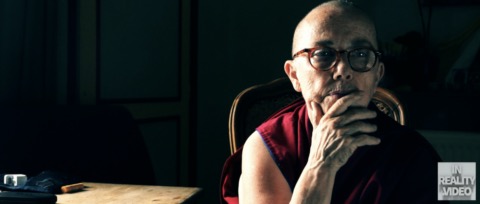 Robina Courtin
Robina Courtin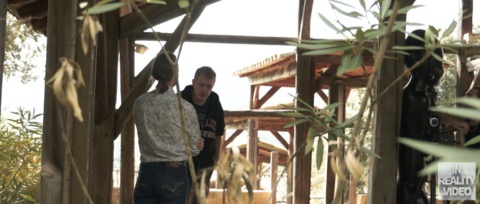 Philippe Matza
Philippe Matza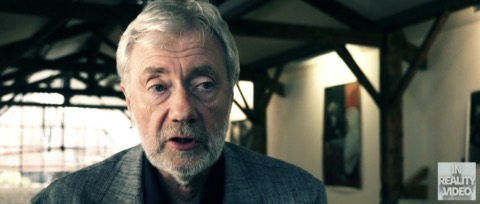 Paul Jorion
Paul Jorion Alessandra Gnecchi
Alessandra Gnecchi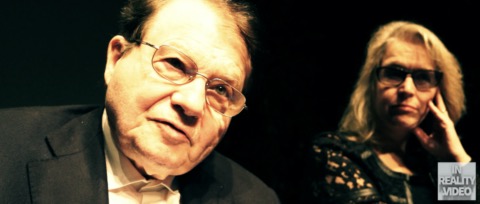 Luc Montagnier
Luc Montagnier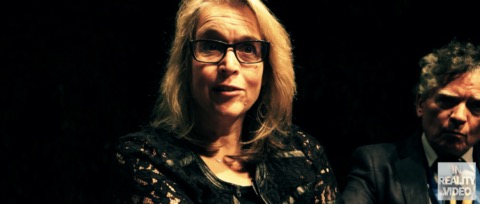 Rachel Yehuda
Rachel Yehuda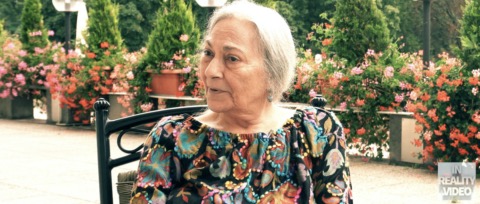 Brenda Dunne
Brenda Dunne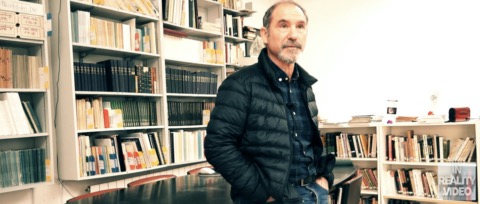 Mario Varvoglis
Mario Varvoglis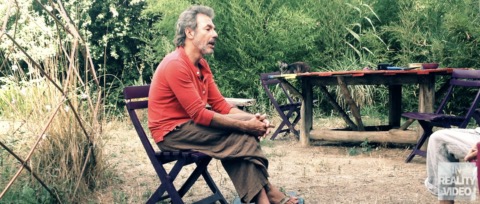 Yann Lipnick
Yann Lipnick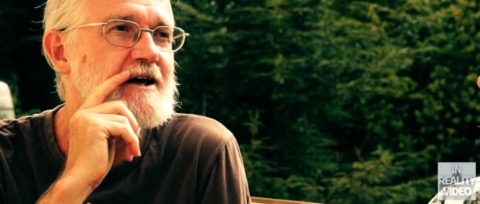 Dan Winter
Dan Winter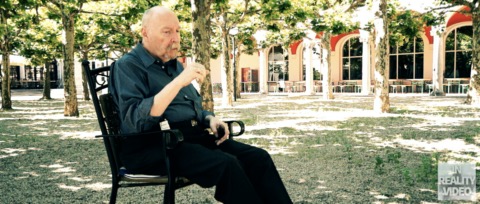 Peter Mulacz
Peter Mulacz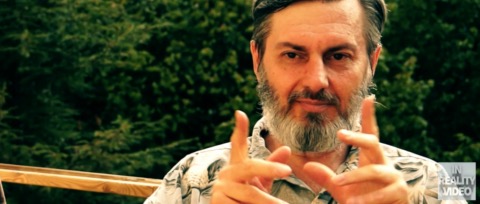 Bill Donovan
Bill Donovan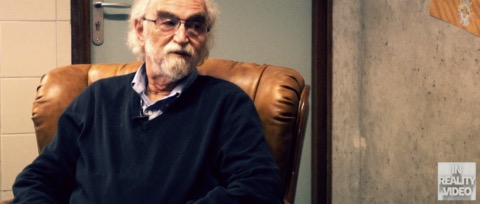 Gerald Pollack
Gerald Pollack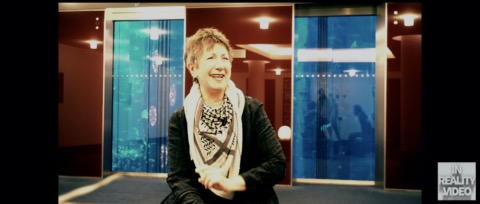 Karin Schussmann
Karin Schussmann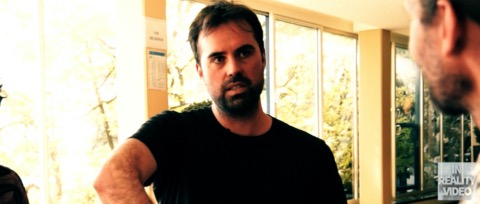 David Andriot
David Andriot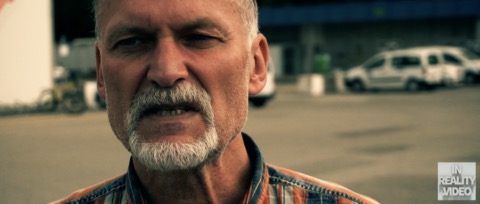 Jan Rak
Jan Rak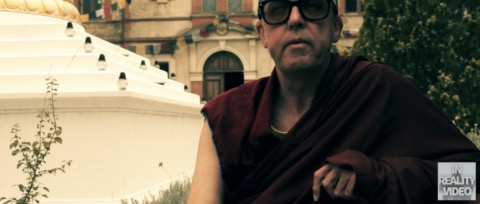 Jampa Ludrup
Jampa Ludrup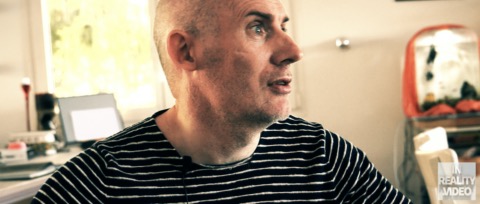 Lionel Cras
Lionel Cras Marcus Schmieke
Marcus Schmieke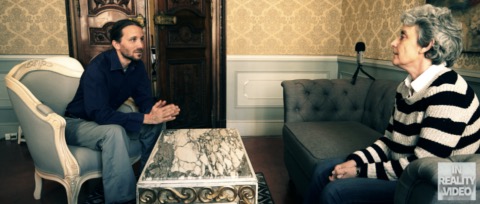 Bernadette Geraud
Bernadette Geraud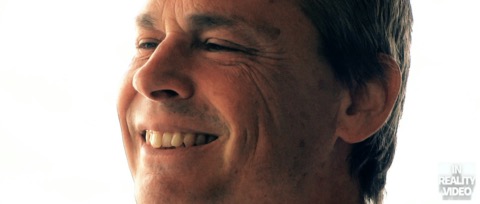 stephane cardinaux
stephane cardinaux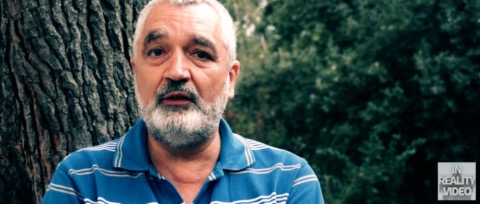 Francois Gerland
Francois Gerland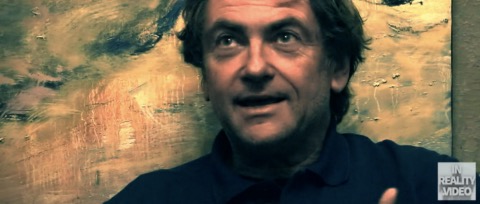 Didier Van Cauwelaert
Didier Van Cauwelaert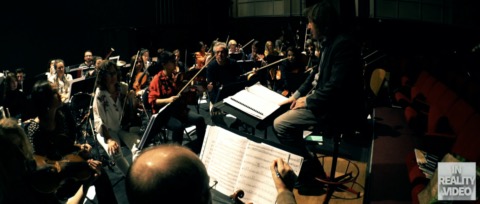 Daniel Tosi
Daniel Tosi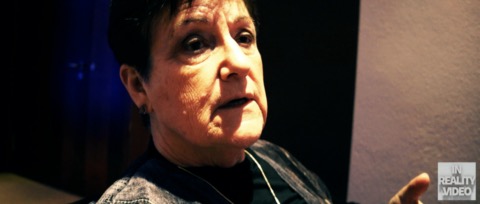 Carolyn McMakin
Carolyn McMakin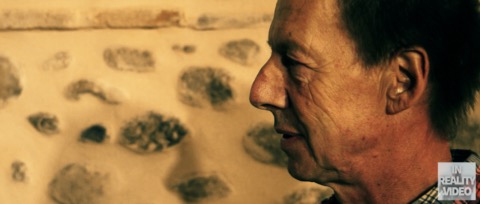 Frank Blomeyer
Frank Blomeyer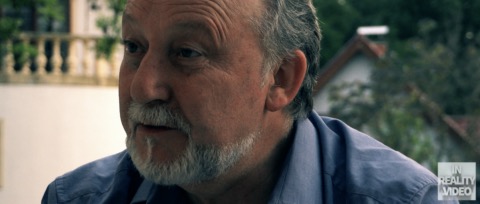 Kim Jobst
Kim Jobst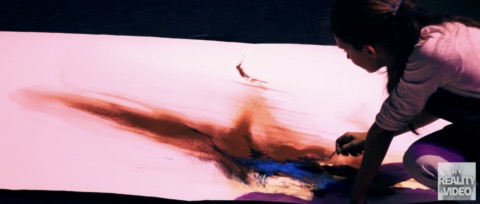 Christine Degoy
Christine Degoy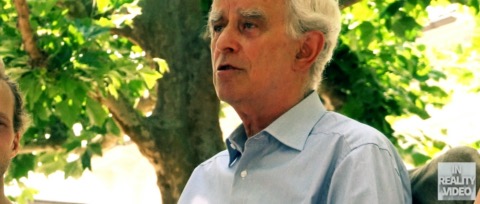 Pim Van Lommel
Pim Van Lommel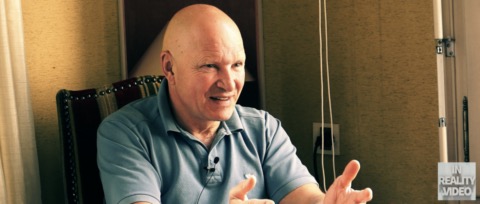 Konstantin Korotkov
Konstantin Korotkov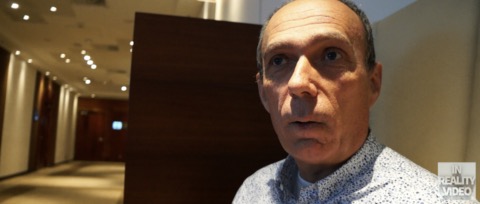 Marc Henry
Marc Henry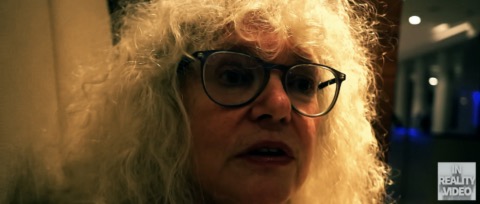 Antonie Peppler
Antonie Peppler Thomas Campbell
Thomas Campbell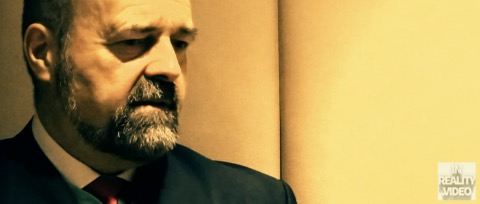 Folker Meissner
Folker Meissner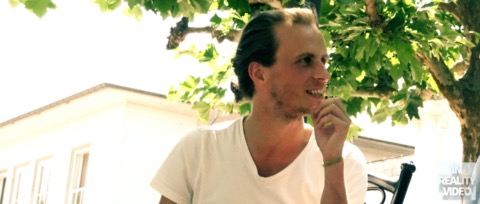 Johannes Eisenburger
Johannes Eisenburger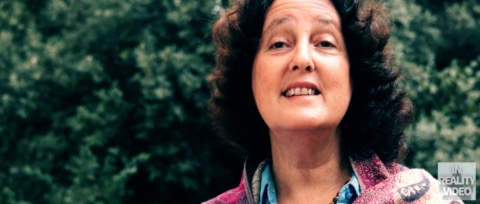 Julie Gerland
Julie Gerland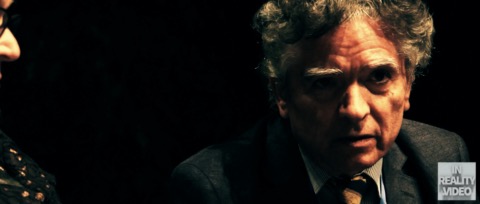 Giuseppe Vitiello
Giuseppe Vitiello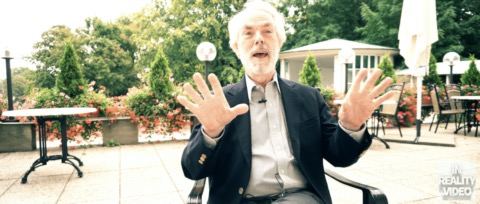 Roger Nelson
Roger Nelson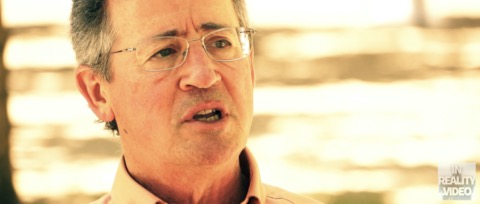 Christopher Bache
Christopher Bache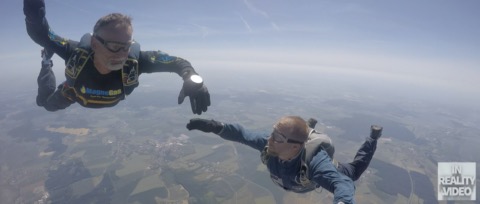 in free fall
in free fall
 EN
EN FR
FR